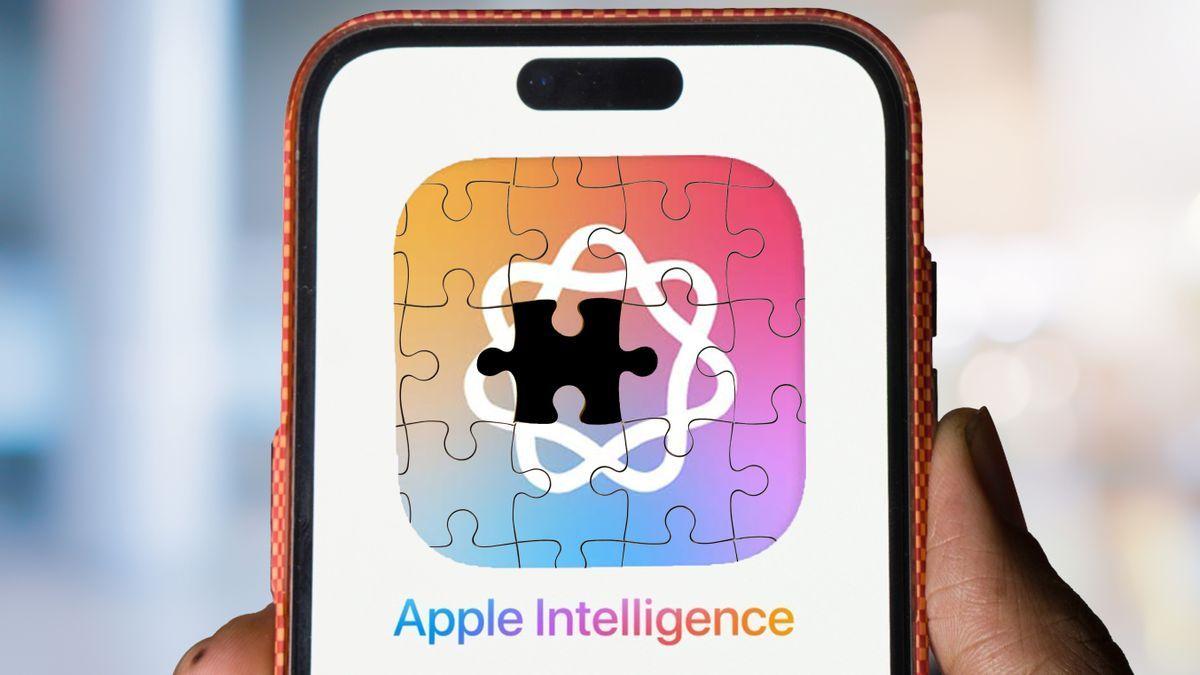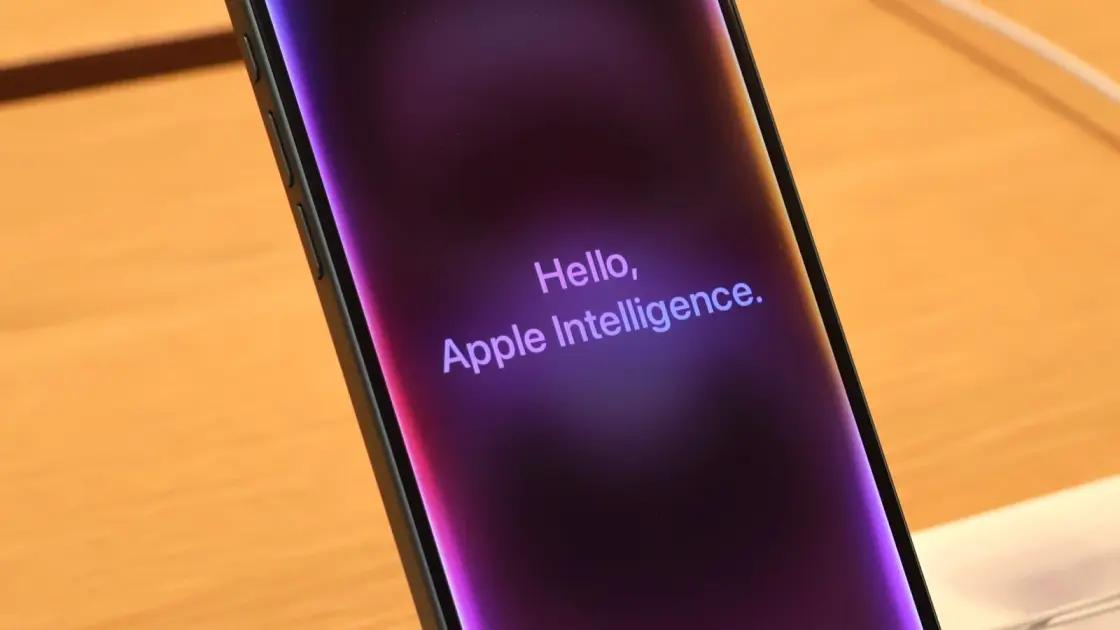Apple Faces Legal Challenge Over Delayed AI Features in iPhone 16
2 Sources
2 Sources
[1]
Apple finally responds to class action lawsuit over delayed Apple Intelligence features
Apple has finally responded to the Siri class action lawsuit filed earlier this year (no, not that one) which claims that delayed Apple Intelligence features duped customers into purchasing iPhone 16 handsets. The tech giant was hit with multiple lawsuits that were consolidated into a single class-action in April of this year. The case, Landsheft v. Apple Inc., was filed in the Northern District of California and features 69 plaintiffs. The plaintiffs argue that Apple misled customers over Apple Intelligence and specifically Siri with the delay of two features, personal context awareness and in-app controls. On Thursday, Apple filed a motion to dismiss the lawsuit arguing that it cannot support the "sweeping claims" made by the plaintiffs. "Plaintiffs complain about the timing of release of two features, despite the near two dozen Apple Intelligence features that have already been delivered," Apple's lawyers argue in the motion. It goes on to say that the plaintiffs have benefitted from improved cameras, silicon, performance and displays along with "twenty Apple Intelligence features in their iPhone 16 models." Some of those twenty features include Genmoji, Image Playground and Writing Tools. The plaintiffs allege that an improved Siri was promised specifically in advertisements leading up to the release of the iPhone 16, as well as at WWDC 2024. Apple is saying that vague references to Siri don't count. How we got here There were rumors of an overhauled Sir before WWDC last year, and Apple made a number of promises about Siri during the annual developers conference. However, it was also revealed that Apple Intelligence features would be rolled out piecemeal over several months across different iOS 18 updates. New Siri features were supposed to be included in those updates. Apple advertised the Siri features in presentations, online and even in ads that featured actor Bella Ramsey -- which were removed from official Apple channels in March. Apple has struggled with its approach to AI, with multiple reports of internal dysfunction in the AI departments at Apple. Not to mention live AI features that were shockingly bad or only worked part of the time. In March of this year, Apple officially announced that promised Siri capabilities would be delayed in to 2026. They will reportedly arrive with iOS 26.4 in March or April. "The problem isn't that Apple has delayed smarter Siri. The problem is that Apple promised a smarter Siri as a reason to purchase its devices today," analyst Avi Greengart of Techsponential said at the time. Why the lawsuit is important In the past, Apple had a reputation for not announcing features or devices until they were 100% ready for release. That changed with the arrival of Apple Intelligence. Apple isn't the first company to do this, but tech companies regularly sell products based on future promises rather than what is actually available today. The iPhone 16 series, it could be argued and the plaintiffs are, promised an AI era for the iPhone. Apple argues that eventually most of the promised features did arrive by the end of 2024 and going into the spring of 2025. All of which came at no extra cost, the lawyers claimed, which shows that customers weren't misled about the iPhone 16, even if some Siri features have been delayed for nearly 2 years now. If the case proceeds and Apple loses, it could set a precedent for how tech companies market their products based on actually available features. We won't know if the lawsuit actually gets dismissed or goes to trial until next year. The hearing on Apple's motion to dismiss is scheduled for January 7, 2026. If the case survives, the lawsuit could last for years. Meanwhile, Apple is also fighting another lawsuit over toxic "forever" chemicals in some Apple Watch bands that also kicked off this year. Follow Tom's Guide on Google News and add us as a preferred source to get our up-to-date news, analysis, and reviews in your feeds. Make sure to click the Follow button!
[2]
AppleInsider.com
Apple is asking a judge to throw out a lawsuit that claims the company misled customers about the delayed Apple Intelligence-powered Siri deployment in the iPhone 16 lineup. The case, Landsheft v. Apple Inc., was filed in the Northern District of California and consolidated earlier in 2025. Sixty-nine plaintiffs say they bought iPhone 16 models in 2024 because Apple promised a package of new tools called Apple Intelligence. They argue that Apple failed to deliver two key Siri upgrades on time. The hearing on Apple's motion to dismiss is scheduled for January 7, 2026, in San Jose before Judge Noel Wise. The core dispute Apple announced Apple Intelligence in June 2024 with over 20 AI features. The company began rolling them out in stages that October. Buyers received new emoji tools, image editing, smarter notifications, writing assistants, and closer ties to ChatGPT. The main controversy involves two Siri upgrades, Personal Context Awareness and In-App Actions, which were delayed to later dates. Plaintiffs say those delays mattered because Apple pitched the Siri upgrades as selling points. They claim Apple overstated what buyers would get in 2024, creating false expectations. Apple says customers got almost all the new features for free and on schedule. It argues the lawsuit is an overreaction to just two delayed items. Apple's defense strategy The motion to dismiss goes straight at the issue of reliance. Apple argues that none of the plaintiffs can show they actually saw or relied on a specific promise about the Siri rollout before buying their phones. Many refer only to ads, press coverage, or Apple's Worldwide Developers Conference. Courts require fraud claims to be pled with detail, and Apple says vague references don't cut it. Apple also leans on a 2020 Ninth Circuit decision known as Sonner. That case limited the ability of plaintiffs to pursue equitable remedies like restitution when they already have legal claims that can provide damages. Because the Landsheft plaintiffs included fraud, contract, and warranty claims, Apple argues they can't also tack on consumer protection and unjust enrichment counts. Beyond that, Apple says each claim has its own flaws. The implied warranty of merchantability doesn't apply because the phones work as intended. Express warranty claims fail because no notice was given. Negligent misrepresentation is barred by the economic-loss rule. The contract claim doesn't point to any specific broken promise. And unjust enrichment, Apple argues, is unnecessary when contract and tort claims are already in play. Why the case matters The case is about more than two Siri features. It highlights a recurring tension in tech: companies sell devices today based on software they promise tomorrow. When those promises slip, the line between ordinary delay and consumer deception gets blurry. Apple Intelligence was supposed to mark a new era for the iPhone, putting the company in competition with Google's Gemini and Microsoft's Copilot. A courtroom fight over missed timelines undercuts that pitch. However, Apple points to what it delivered during the rollout. By the end of 2024, customers had over 20 new features, including custom emojis, editing tools, and smarter Siri responses. All of these came at no extra cost. Apple believes that shows buyers got what they paid for, even if a couple of Siri functions arrived later. What happens next Judge Wise will hear arguments on January 7, 2026. If Apple wins, the case ends before discovery and the company avoids pulling back the curtain on its internal development process. If the plaintiffs survive, the fight could stretch into years and put Apple's marketing practices under a microscope. The plaintiffs want damages or refunds, while Apple wants the case dismissed outright. The court will decide whether two delayed Siri features are enough to take the world's richest tech company to trial.
Share
Share
Copy Link
Apple is seeking dismissal of a class-action lawsuit alleging misleading marketing of AI features in iPhone 16. The case highlights the tension between promised and delivered technology in the tech industry.
Apple's Legal Battle Over Delayed AI Features
Apple is currently embroiled in a class-action lawsuit, Landsheft v. Apple Inc., filed in the Northern District of California, which consolidates claims from 69 plaintiffs
1
2
. The lawsuit alleges that Apple misled customers about the availability of certain Apple Intelligence features, particularly two Siri upgrades, in the iPhone 16 lineup.
Source: Tom's Guide
The Core of the Dispute
The controversy centers around Apple's announcement of Apple Intelligence in June 2024, which promised over 20 AI features
2
. While most features were rolled out as planned, two key Siri upgrades - Personal Context Awareness and In-App Actions - faced significant delays1
. The plaintiffs argue that these delays matter because Apple used the Siri upgrades as selling points for the iPhone 16, creating false expectations among consumers.Apple's Defense Strategy
Apple has filed a motion to dismiss the lawsuit, arguing that it cannot support the "sweeping claims" made by the plaintiffs
1
. The company contends that customers have already benefited from numerous Apple Intelligence features, including Genmoji, Image Playground, and Writing Tools1
.Apple's defense strategy focuses on several key points:
- Lack of specific reliance: Apple argues that the plaintiffs cannot show they relied on specific promises about the Siri rollout before purchasing their phones
2
. - Delivery of promised features: The company claims that most of the promised features were delivered by the end of 2024 at no extra cost
1
. - Legal technicalities: Apple cites various legal precedents and rules to challenge the validity of the plaintiffs' claims
2
.
Related Stories
Broader Implications for the Tech Industry
This case highlights a recurring tension in the tech industry: companies selling devices based on future software promises
2
. The outcome of this lawsuit could set a precedent for how tech companies market their products based on features that are not immediately available1
.What's Next
The hearing on Apple's motion to dismiss is scheduled for January 7, 2026, before Judge Noel Wise in San Jose
2
. If Apple's motion is successful, the case will end before discovery. However, if the plaintiffs' claims survive, the legal battle could stretch into years, potentially exposing Apple's internal development processes to scrutiny2
.References
Summarized by
Navi
[1]
[2]
Related Stories
Apple Faces Lawsuit Over Delayed Apple Intelligence Features
21 Mar 2025•Technology

Apple Faces Shareholder Lawsuit Over Delayed AI-Powered Siri Features
21 Jun 2025•Business and Economy

Apple Removes 'Available Now' Claim for Apple Intelligence Features Following Advertising Inquiry
23 Apr 2025•Technology

Recent Highlights
1
ByteDance's Seedance 2.0 AI video generator triggers copyright infringement battle with Hollywood
Policy and Regulation

2
Demis Hassabis predicts AGI in 5-8 years, sees new golden era transforming medicine and science
Technology

3
Nvidia and Meta forge massive chip deal as computing power demands reshape AI infrastructure
Technology





